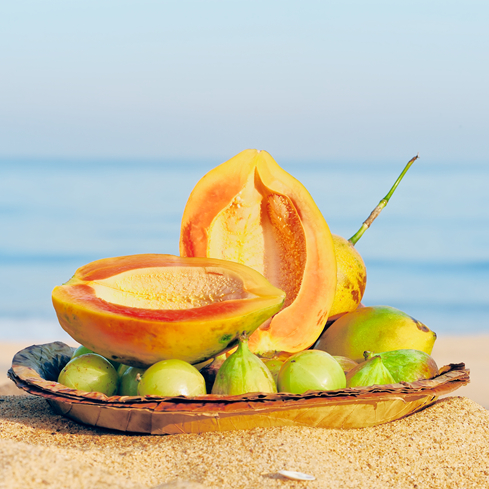
South beach diet
Alternate names: Dieta South Beach, High Protein Diet, LCD, LCHPD, Low-carb Diet, Low-carbohydrate Diet, Low-carbohydrate High Protein Diet, Régime Faible en Glucides, Régime Faible en Glucides et Riche en Protéines, Régime Hypoglucidique et Hyperprotéiné, Régime Hyperprotéiné, Régime Hypoglucidique, Régime Miami, Régime South Beach, Régime de South Beach, South Beach, Southbeach Diet
Background
The South Beach diet is a low-carbohydrate, high-protein weight loss diet. It is based on a book by Arthur Agatston, MD, which was first published in 2003.
The South Beach diet's main strategy is to eliminate or reduce carbs that have a high glycemic index. High glycemic index foods raise blood sugar levels quickly after the food is eaten. Some people think that high glycemic index foods cause excessive insulin secretion resulting in fat buildup.
People use the South Beach diet for diabetes and weight loss, but there's no good scientific evidence to support these uses.
The South Beach diet's main strategy is to eliminate or reduce carbs that have a high glycemic index. High glycemic index foods raise blood sugar levels quickly after the food is eaten. Some people think that high glycemic index foods cause excessive insulin secretion resulting in fat buildup.
People use the South Beach diet for diabetes and weight loss, but there's no good scientific evidence to support these uses.
Safety Safety definitions
When taken by mouth: There isn't enough reliable information to know if the South Beach diet is safe or what the side effects might be. As with any diet, eating nutrient-rich foods should be encouraged.
Special Precautions & Warnings:
Pregnancy and breast-feeding: There isn't enough reliable information to know if the South Beach diet is safe to use when pregnant or breast-feeding. Stay on the safe side and avoid use.Effectiveness
Effective Effectiveness definitions
There is interest in using the South Beach Diet for a number of purposes, but there isn't enough reliable information to say whether it might be helpful.
Dosing & administration
The South Beach diet consists of three phases. In phase 1, intake of carbs and high glycemic foods is severely limited. During phase 2, a select few foods containing carbs such as fruits, breads, and wine can be added back into the diet, but only in moderation. In the final phase, foods of all types are allowed back into the diet, but again with moderation. Seek and follow relevant directions from your physician or other healthcare professional before using this diet.
Interactions with pharmaceuticals
It is not known if this treatment interacts with any medicines. Before using this treatment, talk with your health professional if you take any medications.
Interactions with herbs & supplements
There are no known interactions with herbs and supplements.
Interactions with foods
There are no known interactions with foods.
vital.ly has licensed monographs from TRC Healthcare.
This monograph was last reviewed on 16/05/2025 10:00:00 and last updated on 16/06/2015 22:21:55. Monographs are reviewed and/or updated multiple times per month and at least once per year.
Natural Medicines disclaims any responsibility related to medical consequences of using any medical product. Effort is made to ensure that the information contained in this monograph is accurate at the time it was published. Consumers and medical professionals who consult this monograph are cautioned that any medical or product related decision is the sole responsibility of the consumer and/or the health care professional. A legal License Agreement sets limitations on downloading, storing, or printing content from this Database. No reproduction of this monograph or any content from this Database is permitted without written permission from the publisher. It is unlawful to download, store, or distribute content from this site.




